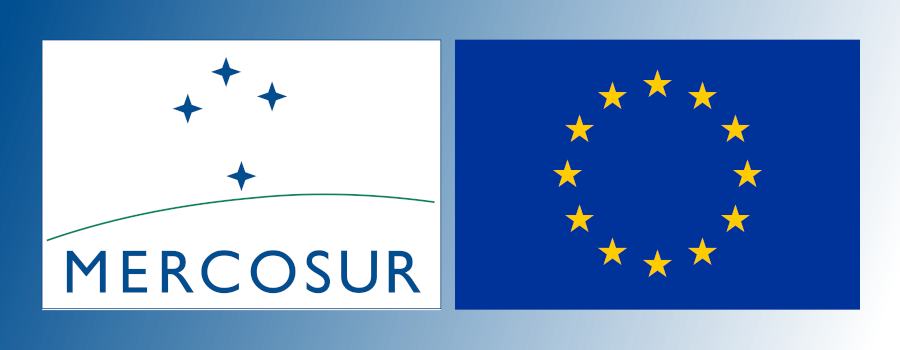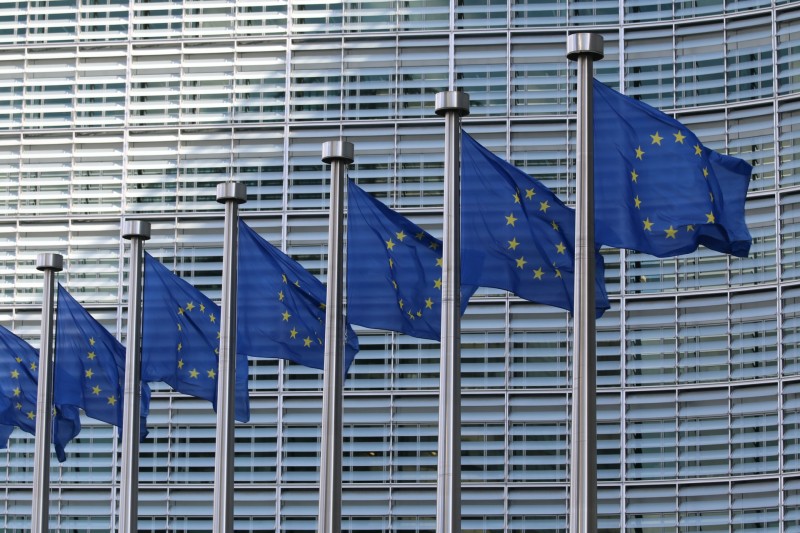EU-MERCOSUR: an agreement in jeopardy
In the last few years, thanks to my studies in international politics and my interest in European affairs, I have been analysing and deepening my knowledge about the functioning and policies of the European Union.

My studies convinced me that the economic and cultural exchange between the Member States of the EU led not only to a stronger economy, but also to better living conditions, peace and social security. Indeed, this is confirmed by statistics and data.[1]
The Union aims to enable EU citizens to study, live, shop, work and retire in any EU country and enjoy products from all over Europe. To do this, it ensures free movement of goods, services, capital and people in a single EU internal market. By removing technical, legal and bureaucratic barriers, the EU also allowed citizens to trade and do business freely. To preserve the EU’s financial stability and resolve tensions in sovereign debt markets in the euro area, the EU also set up a safety net for euro area members in difficulty: the European Stability Mechanism (ESM).
Replacing the temporary tools that had existed before, this is the world’s largest multilateral financial institution, with an effective lending capacity of up to €500bn.
Apart from that, the benefits of the single currency seem clear to me: first of all, people no longer need to change money when travelling or doing business within the euro area, saving time and transaction costs; secondly, it costs much less or nothing at all to make cross-border payments and lastly, consumers and businesses can compare prices more easily, which encourages businesses charging higher prices to bring them down. Being in the euro area guarantees stable prices since the European Central Bank sets key interest rates at levels designed to keep inflation close to, but below, 2%. Honestly, I realised how much this is important only by living in Argentina for a few months, where the inflation has reached peaks of almost 50% per year[2] and prices rises continuously while salaries lose their purchasing power.
The combined size and strength of the euro area also creates a stronger and more stable currency that is better able to shield its members from external shocks and currency market turbulence, than individual countries alone could achieve.
Furthermore, through the European pillar of social rights[3], the EU safeguards the rights of citizens by ensuring equal opportunities and access to the labour market, fair working conditions, social protection and inclusion. EU funding helps public and private organisations implement and improve employment and social policy, and finance projects to support their citizens.
Not only that: as regards trade, from 1999 to 2010, EU foreign trade doubled and now accounts for over 30% of the EU’s gross domestic product (GDP).
Moreover, speaking as one voice, the EU carries more weight in international trade negotiations than each individual member could. In addition to that, EU agreements usually include democratic clauses, tariff reductions, rules on matters such as intellectual property or sustainable development and clauses on human and basic civil rights so to expand the Rule of Law all over the world.
Based on these knowledge, which I still consider fundamental, I started writing my Bachelor’s thesis on the external relationships of the European Union with MERCOSUR (Common Market of the South), the regional organisation in South America. MERCOSUR is an example of limited free trade area, characterised by a low level of institutionalisation, if compared to the European Union, and without a supranational sovereignty.[4]
When I began to write my dissertation, firstly, I have been reading articles and papers in Italy, strengthening my believes in the idea that liberal trade all over the world, when linked to social measures meant to protect little producers and most of all consumers, would have been the answer to poverty and underdevelopment.
But then, when I came to Argentina and started investigating, I found out different points of view and arguments I completely agree on, but which brought me to the opposite conclusion.
The possible free trade agreement between the two organisations would be based on the democratic principles both the organisations are founded on and it would increase their cooperation in many sectors of mutual interest, such as energy, transport, environment protection, anti-drug trafficking measures and education.[5] As regards economic policies, the agreement would reduce import quotas and custom tariffs in order to increase trade between the two regions.
However, I am not sure anymore that a free trade agreement between the EU and MERCOSUR would benefit both of them and strengthen their economies.
On the one hand, some countries in Europe, such as France, Italy, Ireland and Poland, would be affected by the liberalisation of agricultural products with MERCOSUR, since the South American ones may be cheaper and of better quality.
Nevertheless, some authors believe this is only a political matter, and it will not affect the regional economy since sensible agricultural products only concern 14,3% of the total European import of agricultural goods from MERCOSUR.[6]
On the other hand, MERCOSUR is trying to protect its local production in the manufacturing and industrial sectors, above all in the fields of high tech and automobiles. Indeed, South American economic policies are in general based on protectionist measures, customs tariffs and import duties to European products in order not to affect the internal market. Thus, the reduction or suspension of custom duties could damage MERCOSUR economy, which is already fragile and unstable.
To conclude, since a cooperation agreement without a free trade deal appears to be out of the question in the current world, what seems desirable to me is a better and stronger internal economic, social and political integration of both the MERCOSUR and the European Union separately, but I cannot declare myself sure of the fact that a free trade agreement between the two organisations could be favourable, especially for the South American one.
Ester Davanzo
Notes:
[1]: https://europa.eu/european-union/index_en
[2]: https://www.gauchonews.it/economia-argentina/inflazione-in-argentina-2018/
[4]: R. Belloni, M. Moschella, D. Sicurelli, Le organizzazioni internazionali, Bologna, Il mulino, 2013.
[5]: For more information see: R. Dromi, C. Molina Del Pozo, Acuerdo Mercosur Union Europea, Ediciones Ciudad Argentina, Buenos Aires, 1996.
[6]: M. Cienfuegos Mateo, “Las relaciones exteriores del Mercosur”, Revista CIDOB d’Afers Internacionals, n. 54-55, 2001, pp. 139-164.
Sources:
S. Abreu, “El Mercosur y la Unión Europea. Hacia el inicio de una nueva era en sus relaciones bilaterales”, Revista Enfoques Mercosur, año 1, n. 3, Montevideo, Programa de cooperación COMISEC/BID/PNUD, feb. 1995.
L. Antoniolli, L. Bonatti, C. Ruzza, Highs and Lows of European Integration Sixty Years After the Treaty of Rome, Springer International Publishing AG, 2019.
R. Belloni, M. Moschella, D. Sicurelli, Le organizzazioni internazionali, Bologna, Il mulino, 2013.
V. Bulmer-Thomas, “The European Union and MERCOSUR: Prospects for a Free Trade Agreement”, Journal of Interamerican Studies and World Affairs, Volume 42, Issue 1, 19 December 2008.
M. Cienfuegos Mateo, “¿El Interregionalismo en cuestión?: El caso de las Relaciones de la Unión Europea con el MERCOSUR”, Revista Aportes para la Integración Latinoamericana, Año XVI, n. 22, Junio 2010, pp. 1-42.
M. Cienfuegos Mateo, “La anhelada asociación euromercosureña tras quince años de negociaciones”, Revista CIDOB d’Afers Internacionals, 2016, n.112, pp. 225-253.
M. Cienfuegos Mateo, I. Jovtis, “Las negociaciones del acuerdo de asociación entre la Unión Europea y Centroamérica: Estado actual y perspectivas”, Revista electrónica de estudios internacionales, 2009, n. 17, pp. 2-24.
M. Cienfuegos Mateo, “Las relaciones exteriores del Mercosur”, Revista CIDOB d’Afers Internacionals, n. 54-55, 2001, pp. 139-164
M. Cienfuegos Mateo, “Opiniones consultivas en el Mercosur y cuestiones prejudiciales en la Unión Europea: estudio comparativo”, Revista de Derecho Comunitario Europeo, n. 42, Madrid, mayo/agosto 2012, pp. 433-476.
C. Del Arenal, Las relaciones entre la UE y América Latina: ¿abandono del regionalismo y apuesta por una nueva estrategia de carácter bilateral?, Madrid, Real Instituto Elcano, 2019. Disponibile in http://americo.usal.es/iberoame/sites/default/files/arenal_relaciones_UE_AL.pdf al 18/04/2019.
M. Doctor, Why Bother With Inter-Regionalism? Negotiations for a European Union-Mercosur Agreement, The Author(s) Journal compilation, Oxford, 2007.
C. F. Dri, “Limits of the Institutional Mimesis of the European Union: The Case of the Mercosur Parliament”, Latin American Policy, Volume 1, Number 1, 2010, pp. 52–70.
R. Dromi, C. Molina Del Pozo, Acuerdo Mercosur Union Europea, Ediciones Ciudad Argentina, Buenos Aires, 1996.
R. Dromi, Derecho comunitario. Régimen del Mercosur, cap. I, Comunitarismo y constitucionalismo, Buenos Aires, Ediciones Ciudad Argentina, 1995, pp. 41-47.
F. Duina, N. Breznau, “Constructing common cultures: the ontological and normative dimension of law in European Union and Mercosur”, European Law Journal, vol. 8, n. 4, December 2002, pp. 574-595.
A. Gomez Arana, The European Union’s policy towards Mercosur: Responsive not strategic, Manchester University Press, 2017.
R. González, H. Sala, “The Frisch Elasticity in the Mercosur Countries: A Pseudo-Panel Approach”, Development Policy Review, 2015, 33 (1), pp. 107-131.
R. Gouvea, M. Montoya, Mercosur After Chavez, Wiley Periodicals, Thunderbird International Business Review Vol. 56, No. 6, November/December 2014, pp. 563-575.
J. Grugel, “Democratization and Ideational Diffusion: Europe, Mercosur and Social Citizenship”, The Author(s) Journal compilation, Oxford, 2007, Volume 45, Number 1, pp. 43–68.
F. Junkera, T. Heckelei, TRQ-complications: who gets the benefits when the EU liberalizes Mercosur’s access to the beef markets? in F. Junker, T. Heckelei, “Agricultural Economics”, 2012 (43), pp. 215–231.
A. Klom, “Mercosur and Brazil: a European perspective”, International Affairs 79, 2003 (2), pp. 351-368.
F. Lorenzo, M. Vaillant et al., “Mercosur and the creation of the free trade area of the Americas”, Woodrow Wilson Center Report on the Americas, n. 14, September 2003.
M. Mecham, “Mercosur: a failing development project?”, International Affairs 79, 2003 (2), pp. 369-387.
C. Moneta, “Las relaciones exteriores del Mercosur. Todos los juegos, el juego”, Boletín sobre Integración de América Latina y el Caribe, n. 11, 1998, pp. 1-12.
S. B. Morelli de Bracali, “Mercosur-Unión Europea: perspectivas de una relación multidimensional”, El Mercosur en el nuevo orden mundial, Buenos Aires, Ediciones Ciudad Argentina, 1996.
S. C. Negro at al, Lecturas sobre integración regional y comercio internacional. Homenaje a Susana Czar de Zalduendo, La Ley, Buenos Aires, 2012.
G. Philippidis, A. I. Sanjuán, “An Analysis of Mercosur’s Regional Trading Arrangements”, The World Economy, 2007.
C. Sanchez Bajo, “The European Union and Mercosur: A case of inter-regionalism”, Third World Quarterly, October 1999.
A. Uslar Pietri, Introducción general a la obra iberoamérica, una comunidad, Madrid, Ediciones de Cultura Huspanica, 1989, pp. 23-46.
A. Van Der Vleuten, A. Ribeiro Hoffmann, “Explaining the Enforcement of Democracy by Regional Organizations: Comparing EU, Mercosur and SADC”, The Author(s) Journal compilation, Oxford, 2010, Volume 48, Number 3, pp. 737–758.



